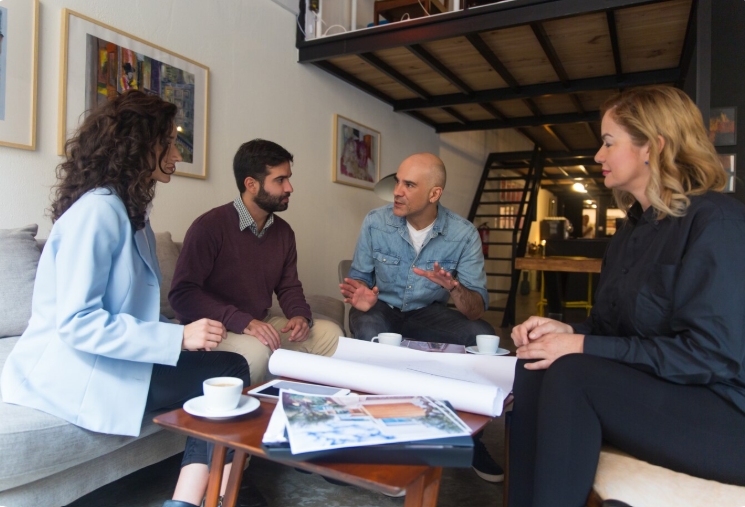Cultural Nuances in Spanish Business Settings
Spain, with its rich heritage, vibrant culture, and global economic ties, presents both opportunities and challenges for professionals navigating its business environment. Whether you’re launching a startup in Madrid, negotiating contracts in Barcelona, or building a multinational presence from Valencia, understanding the cultural nuances of Spanish business etiquette is vital for sustainable success. This article explores the intricacies of Spanish business culture and provides practical tips for thriving in this dynamic environment.
Understanding the Foundations of Spanish Business Culture
Spanish business culture is deeply rooted in respect, personal relationships, and trust. Unlike more transactional cultures, Spain emphasizes human connections and values the time it takes to build genuine rapport. Business interactions often begin with informal discussions, and it’s common for meetings to start later than scheduled, reflecting a more flexible sense of time.
Hierarchy is also important in Spanish companies, though not as rigid as in some other cultures. Titles and ranks matter, and decisions are often made at the top. This makes it important to identify and engage with key decision-makers early in any negotiation or partnership.
Communication Style: Expressive and Indirect
Spaniards are generally expressive communicators. Gestures, facial expressions, and tone of voice all play a significant role in conveying messages. While honesty is appreciated, direct confrontation is often avoided. Instead, communication tends to be more nuanced and diplomatic. Reading between the lines and understanding non-verbal cues is a critical skill for foreigners doing business in Spain.
Meetings often involve lively discussion and overlapping speech, which should not be mistaken for rudeness. Rather, it is a cultural norm that reflects enthusiasm and engagement.
Building Trust Through Personal Relationships
Trust is the cornerstone of Spanish business relationships. While credentials and expertise matter, establishing a personal connection is often the key to unlocking long-term collaborations. Spaniards prefer doing business with individuals they know and trust. Business lunches, coffee breaks, and dinners are common and should not be rushed—they are opportunities to build rapport and discuss matters beyond work.
Networking is essential. Personal referrals and introductions carry significant weight, and many business deals begin with a strong personal recommendation. As such, investing in relationship-building activities is more than just good etiquette—it’s a strategic necessity.
Work-Life Balance and Business Hours
Spain is known for valuing work-life balance. Although this is evolving with global business demands, many professionals still adhere to traditional business hours, with a mid-day break (or “siesta”) still observed in some regions. The standard workday might begin around 9:00 AM, with a long lunch break around 2:00 PM, and then continue into the early evening.
Understanding and respecting these rhythms is crucial, especially when scheduling meetings or expecting swift replies. Pushing for urgency in a culture that prioritizes balance may backfire and damage the relationship.
The Role of Formality and Appearance
While Spaniards are warm and personable, professionalism and presentation still matter. In business settings, people dress conservatively and elegantly. First impressions are important, and your appearance should communicate competence and respect for the occasion.
Titles such as “Señor” or “Señora” followed by a surname are commonly used, especially in initial meetings. It’s best to wait until invited to switch to a first-name basis.
Negotiations and Decision-Making
Spanish negotiations may seem slower compared to other business environments. Patience is essential. Decisions often involve multiple layers of approval, and rushing the process can be seen as disrespectful. It’s common for discussions to revisit the same points multiple times to build consensus and comfort with the final decision.
Be prepared to engage in lengthy, relationship-driven negotiations that may include social meetings outside the office. Demonstrating long-term commitment is more valued than aggressive negotiation tactics focused solely on short-term gains.
Regional Differences Within Spain
It’s important to note that Spain is not culturally homogeneous. Significant differences exist between regions such as Catalonia, the Basque Country, and Andalusia. Language preferences, business etiquette, and communication styles may vary accordingly. For example, in Catalonia, business may be conducted in Catalan as well as Spanish, and locals may place strong emphasis on regional identity.
Being sensitive to these distinctions can enhance your credibility and show respect for local culture. A one-size-fits-all approach rarely works in Spain, so do your homework and adapt accordingly.
Learning New Languages as an Expat: Strategies for Quick Success
One of the most powerful ways to succeed in Spanish business settings—and expat life more broadly—is to learn the local language. Even a basic understanding of Spanish can significantly improve relationship-building, communication, and everyday integration.
Here are a few quick strategies for language success:
- Immerse Yourself: Spend time listening to Spanish radio, watching Spanish TV shows, and reading local news.
- Use Language Apps: Tools like Duolingo, Babbel, or Rosetta Stone can help you build vocabulary and confidence.
- Hire a Tutor: Personalized guidance accelerates learning and allows you to ask business-specific questions.
- Practice Daily: Speak with locals, even if you make mistakes. Most people appreciate the effort.
- Join Language Meetups: Attending social gatherings where people practice Spanish can offer both language and networking benefits.
Language fluency not only builds stronger business relationships but also demonstrates cultural respect—an invaluable trait in Spain’s professional world.
Stay Connected for More Travel and Lifestyle Inspiration
For more insights into travel, culture, and lifestyle tips, follow me on @salvadorordorica. If you’re seeking professional translation and localization services to enhance your global ventures, visit The Spanish Group — your trusted partner in bridging cultures worldwide.



